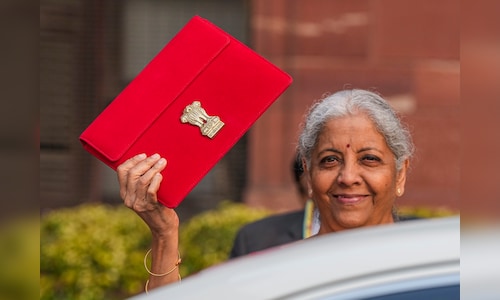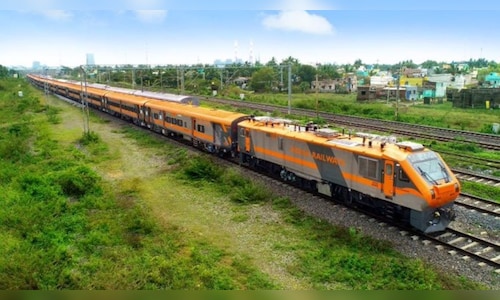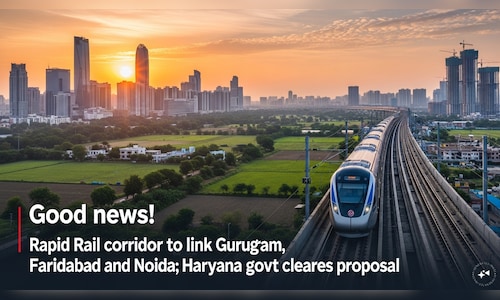According to sources, the meeting saw participation from leading industry representatives across travel, hospitality, medical tourism and allied services, reflecting the sector’s hope that Budget 2025 will deliver structural support for one of India’s fastest-growing service industries.
The finance minister met top leaders from the sector, including Sangeeta Reddy of Apollo Hospitals, Asmita Joshi of Airbnb, and Rajesh Magow of MakeMyTrip. Representatives from VFS Global, the India Food Tourism Organisation, the Domestic Tour Operators Association, the Adventure Tour Operators Association and the Tourist Guide Federation were present, sources added, indicating a comprehensive dialogue across the tourism value chain.
Also read | Travel spending trends in India: How Gen Z and women manage budgets
Demand for industry status intensifies
One of the central demands placed before the FM was the long-pending request for granting industry status to the tourism and hospitality sector. Stakeholders argued that while tourism contributes significantly to GDP and employment, fragmented regulations and the absence of formal industry recognition have limited its access to affordable financing, incentives and uniform regulatory treatment.
The sector stressed that industry status would bring formal recognition and unlock investment, particularly in Tier II and Tier III destinations where rapidly growing domestic tourism is outpacing infrastructure. According to sources, several representatives emphasised that the sector’s multiplier effect on jobs makes it a strong candidate for structured support in the upcoming budget.
Visa simplification emerges as a major ask
As India seeks to bolster its global appeal, tourism stakeholders reiterated the need for simplification of visa regulations. Representatives told Sitharaman that India’s competitors in Southeast Asia have significantly eased entry rules, including visa waivers for key markets, creating a competitive gap for India.
Meanwhile, stakeholders highlighted that faster processing, rationalised visa fees, expanded e-visa categories and targeted visa-on-arrival schemes could help lift inbound tourism, especially from high-spending segments such as medical tourists, adventure travellers and business delegates, sources added.
Also read | How tax collected at source works on overseas travel packages
GST clarity on hotel tariffs needed amid dynamic pricing
Hotels pressed for clarity on GST applicability on room tariffs, particularly in the context of dynamic pricing. Sources revealed industry representatives argued that the current system, which taxes hotels based on the declared room tariff, becomes complicated when actual prices fluctuate daily due to demand-driven pricing algorithms.
Hotels sought clear guidelines to prevent disputes and ensure compliance simplicity. The sector has been pushing for taxation on the transaction value rather than the declared tariff, an issue that has raised concerns among operators due to frequent changes in pricing models adopted across online travel platforms.
Also read | Indians can no longer enter Iran without visa, MEA warns of fake job scams
Push for higher budget allocation for overseas tourism promotion
Another key request was an increase in funds dedicated to promoting India as a top tourist destination abroad. Stakeholders argued that India’s global marketing spends lag those of rival destinations, despite India’s expanding footprint as a cultural, medical and adventure tourism hub.
They added that some industry leaders urged the government to scale up “Incredible India” campaigns, especially in strategic markets such as Europe, the Middle East, North America and East Asia. They highlighted that enhanced digital marketing, trade fairs and roadshows could materially boost foreign tourist arrivals.
Single-window clearance system for hospitality projects
Industry participants also sought a single-window clearance mechanism to navigate what they described as “multi-layered and time-consuming” approval processes for setting up hotels and tourism infrastructure. Stakeholders told the finance minister that the current system requires navigating numerous central, state and municipal bodies, delaying project timelines and raising costs.
A unified clearance framework, they argued, would improve investor confidence and align with the government’s broader ease of doing business reforms.
Medical tourism expected to get special focus
Sources said that medical tourism received particular emphasis during the meeting, with representatives calling for enhanced infrastructure, regulatory streamlining and global outreach. With India expected to emerge as one of the world’s largest medical tourism destinations, industry leaders proposed specialised medical visa categories, dedicated hospital facilitation centres, and targeted global campaigns showcasing India’s clinical capabilities and affordability.
Health sector representatives underlined the potential for India to become a global healthcare hub if supported through policy, branding and infrastructure.






